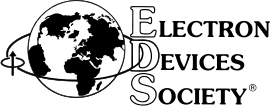- Home
- Publications
- Journal of Microelectromechanical Systems
- Editor-in-Chief and Editors
Editor-in-Chief and Editors
The first issue of IEEE/JMEMS appeared in March, 1992 and the Journal was published quarterly from 1992 to 2002 when it changed to a bimonthly format.
From 1992 to 1997, Dr. William Trimmer was the first Editor-in Chief (EiC) and was succeeded by Professor Richard S. Muller of the University of California, Berkeley from 1997 to 2012 and Professor Christofer Hierold of the Swiss Federal Institute of Technology in Zurich from 2012 to 2019. Gianluca Piazza, Professor at Carnegie Mellon University, became the EiC in March of 2019.
The JMEMS Editorial Board plays a key role in assuring the archival quality of published papers. One of the Editorial Board members is responsible for the review process of each paper and that Editor is identified in a footnote on the first page of each accepted paper. Those members of the Editorial Board, who are designated as Senior Editor, are sometimes assigned the responsibilities of Editor-in-Chief for selected submitted papers to JMEMS.
J-MEMS Editor-in-Chief
Prof. Gianluca Piazza - Editor-in-Chief
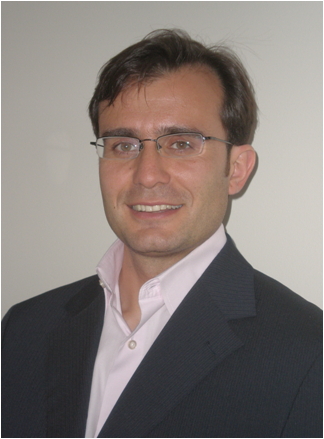
Director of Claire and John Bertucci Nanotechnology Laboratory
Gianluca Piazza is a Professor in the Department of Electrical and Computer Engineering at Carnegie Mellon University (CMU) and the Director of the Claire and John Bertucci Nanotechnology Laboratory (CMU Nanofab). He also holds a courtesy appointment in the Department of Mechanical Engineering. His research interests focus on piezoelectric micro and nanoelectromechanical systems (M/NEMS) for radio frequency communication, optomechanics, chemical/biological detection, and mechanical computing. He also has a general interest in the areas of micro/nano fabrication techniques and integration of micro/nano devices with state-of-the-art electronics and photonics. He has more than 10 years of experience working with piezoelectric materials and devices. He holds several patents in the field of micromechanical resonators some of which have been acquired or licensed by industry. He received the IBM Young Faculty Award in 2006 and has won, with his students, the Best Paper Award at various IEEE Frequency Control and Ultrasonic Symposia.
J-MEMS Editors
Azadeh Ansari
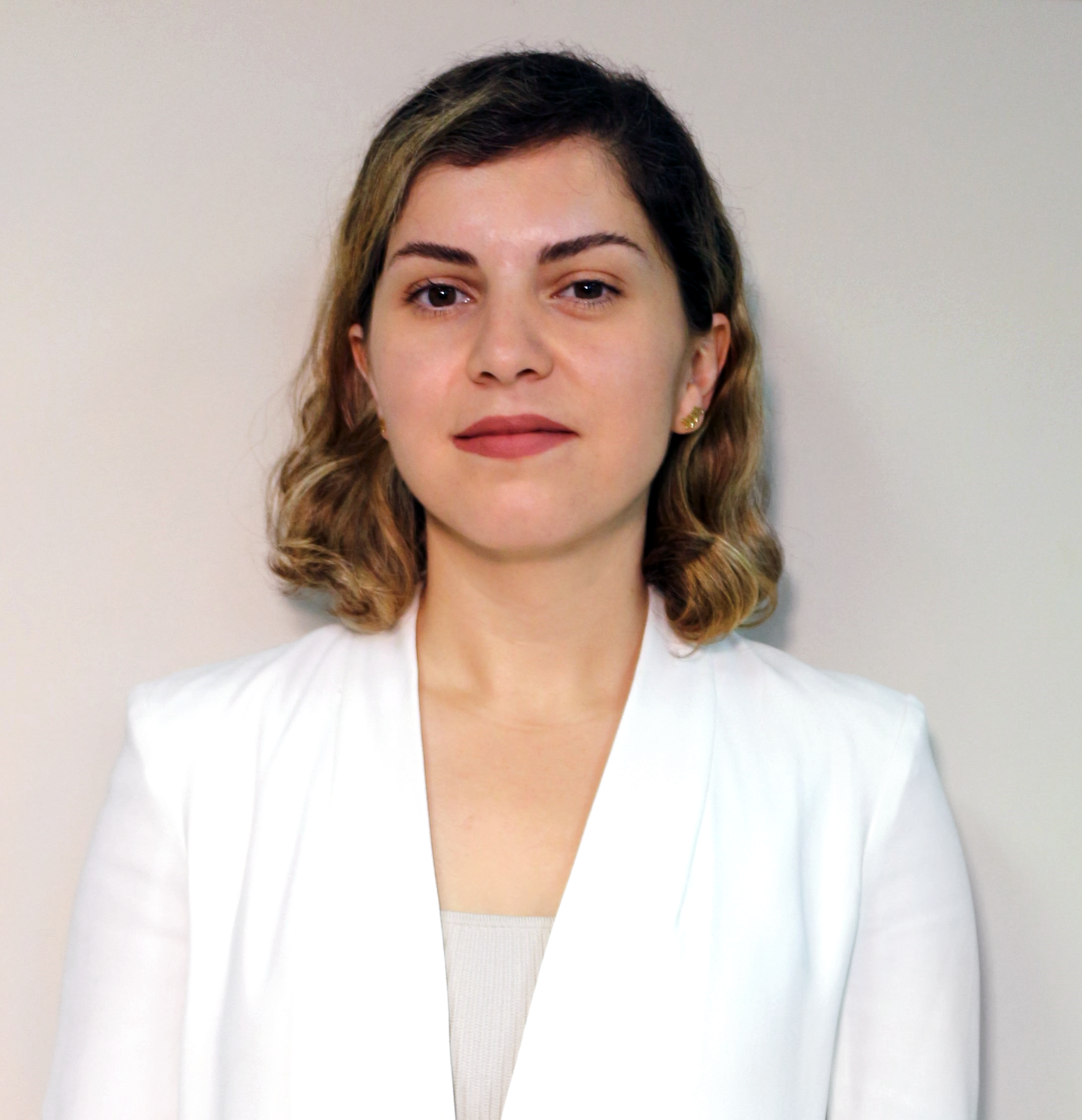
School of Electrical and Computer Engineering Electrical Engineering, USA
Prof. Azadeh Ansari is an Associate Professor in the School of Electrical and Computer Engineering at Georgia Tech (effective Aug. 2023). Her research focuses on Radio Frequency MEMS, acoustic filters, nonlinear NEMS resonant systems and micro-robotics. She received her B.Sc. degree in Electrical Engineering from Sharif University of Technology, Tehran, in 2010. She earned the M.S and Ph.D. degrees in Electrical Engineering from University of Michigan, Ann Arbor in 2013 and 2016. Prior to joining the ECE faculty at Georgia Tech, she was a postdoctoral scholar in the Physics Department at Caltech. She is the recipient of 2021 Roger Webb Outstanding Junior Faculty Award from Georgia Tech, and 2020 NSF CARER award. As an advisor, Dr. Ansari's team have won best student paper awards at the Hilton Head workshop 2022, and MARSS 2022, as well as best student paper finalist at IEEE MEMS 2021, IFCS 2020, and IMS 2019. At Michigan, Dr. Ansari received the 2017 ProQuest Distinguished Dissertation Award, as well as the 2016 University of Michigan Richard and Eleanor Towner Prize for outstanding Ph.D. research.
Núria Barniol - Sensors and Actuators
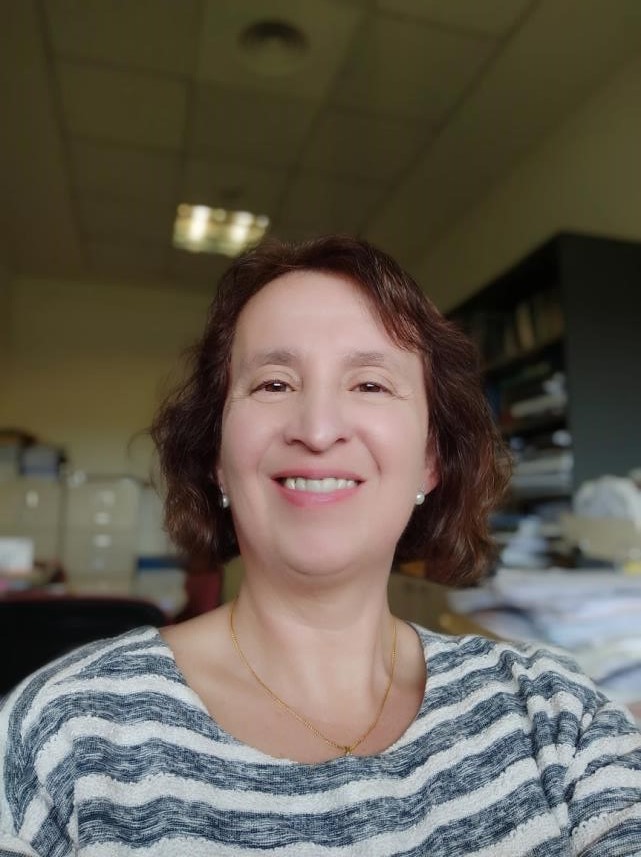
(Spain)
Núria Barniol is a Full Professor at the Electronics Engineering Department of the Universitat Autònoma de Barcelona, in Catalunya, Spain. She received the bachelor degree and PhD degree in Physics from UAB in 1987 and 1992 respectively. She has been working for the last 20 years in the field of MEMS resonators and their integration within CMOS technologies focused on the reduction of dimensions towards nanoelectromechanical devices with optimized CMOS conditioning circuitry. She has co-authored more than 100 research papers and 200 peer-reviewed conferences. She is recipient of the Award of the Universitat Autónoma de Barcelona, for Research Excelence in the area of Technology in 2009. She has been program committee of several conferences including IEEE-IEDM, IEEE-MEMS, MNE, Transducers and Eurosensors. She will be the co-chair in the IEEE-MEMS 2021 conference. Her research interests are now focused on the study of novel piezoelectrical micro/nanometric ultrasonic transducers, their integration with CMOS towards efficient biometrics systems, gesture recognition as well as untouched particle manipulation in liquid.
Juergen Brugger
Research Areas: New materials and fabrication methods for MEMS; nanoscale MEMS
Professional Memberships: IEEE
Biography: Juergen Brugger is Professor at the Ecole Polytechnique Federale de Lausanne (EPFL), Switzerland in Microengineering and Materials Science. Before joining EPFL he was at the MESA+ Research Institute of Nanotechnology at the University of Twente in the Netherlands, at the IBM Zurich Research Laboratory, and at the Hitachi Central Research Laboratory, in Tokyo, Japan. He received his Master in Physical-Electronics and his PhD degree from Neuchatel University, Switzerland.
Since 1995, Dr. Brugger is active in the field of interdisciplinary and experimental micro and nanotechnologies with a focus on novel manufacturing techniques for integrated and multi-functional micro/nanosystems. Dr. Brugger co-invented more than 15 patents and received two IBM patent awards. He served on the program committees of IEEE-IEDM, IEEE-MEMS, IEEE NEMS, Transducers, Eurosensors and MNE conferences. He served as General Chair for the Eurosensors XXIII, Lausanne, 2009, co-chair of MNE 2014, and chair of IEEE-MEMS 2015. Juergen Brugger is senior member of IEEE, co-founder of the start-up MicroLeman Sarl and board member of the "Prix Omega Foundation". His private pursuits include outdoor activities such as mountaineering and sailing as well as indoors sports such as the combination of Single Malts and Jazz music.
Lionel Buchaillot
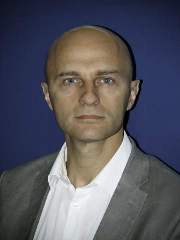
Research Areas: Mechanical Sensors and Systems, RF MEMS / MEMS for Microwaves and Scientific Micro- and Nanoinstruments
Professional Membership: IEEE
Biography: Lionel Buchaillot is a CNRS Senior Researcher. He received the M.S degree in Material Sciences and the PhD degree in Mechanical Engineering respectively in 1991 and 1995, both from the Université de Franche-Comté, Besançon, France. Between 1995 and 1997, he has been with the Laboratory for Integrated MicroMechatronic Systems (LIMMS-CNRS-IIS, The University of Tokyo, Japan) as a JSPS post-doctoral fellow working on thin film shape memory alloys actuators for MEMS. In 1997, he worked as a R&D engineer for the SFIM Company (now SAFRAN) and AVIAC Technologies Company. In 1998, he has joined the CNRS in the ISEN Department of the Institute of Electronics, Microelectronics and Nanotechnology (IEMN). He was the Head of the "Silicon-based MEMS" research group at IEMN between 2001 and 2009. In 2010, he became director of IEMN. His research focuses on Mechanical Sensors and Systems, RF MEMS / MEMS for Microwaves and Scientific Micro- and Nanoinstruments. He has authored or co-authored more than 100 papers and several book chapters. He is recipient of the CNRS Bronze Medal.
Rob Candler - Professor
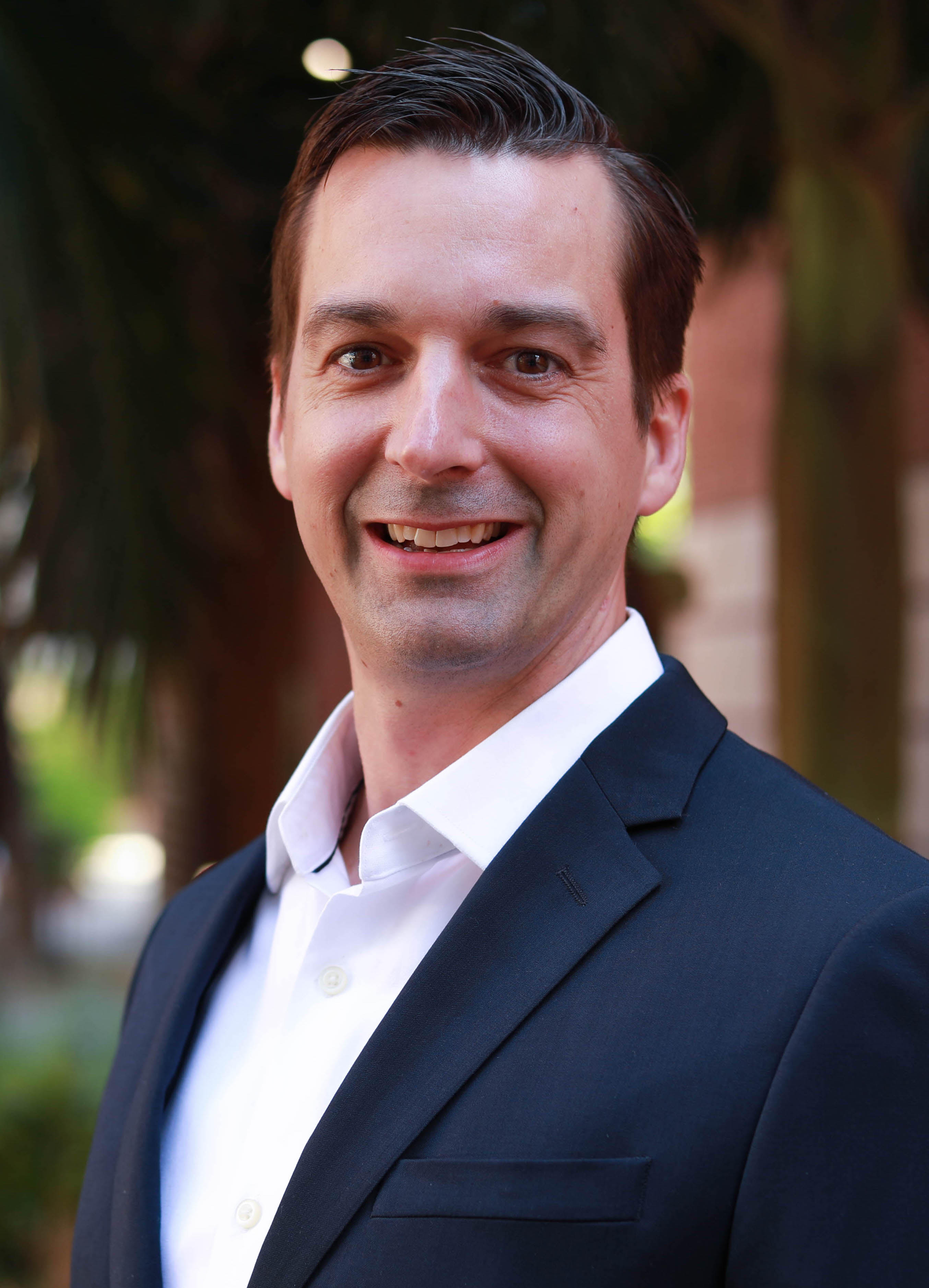
Rob N. Candler received the B.S. in Electrical Engineering from Auburn University in 2000, and he received the M.S. and Ph.D. in Electrical Engineering from Stanford University as an NDSEG and NSF Fellow in 2002 and 2006, respectively. He is currently a Professor of Electrical and Computer Engineering at the University of California, Los Angeles with joint appointments in the Department of Mechanical and Aerospace Engineering and the California NanoSystems Institute. He also serves as the Faculty Director of the Nanoelectronics Research Facility (NRF), a multi-user nanofabrication facility. Before coming to UCLA, he spent three years in Corporate R&D at the Bosch Research and Technology Center, serving concurrently as a consulting assistant professor at Stanford University with the Departments of Electrical and Mechanical Engineering. Prof. Candler’s research expertise is in micro- and nano-electromechanical systems (MEMS/NEMS), including microscale magnetic devices for electron beam manipulation, the fundamental behavior of MEMS/NEMS resonators, sensing systems for surgical tools, and multiferroics. He was awarded the Young Investigator Award from the Army Research Office and the Northrop Grumman Excellence in Teaching Award from the UCLA Henry Samueli School of Engineering and Applied Sciences, both in 2012. He also received the NSF CAREER Award in 2014 and is currently a senior member in the National Academy of Inventors and a Fellow of the American Institute for Medical and Biological Engineering. He has authored or co-authored more than 100 papers in major conferences and journals, four book chapters, and six patents.
Honglong Chang
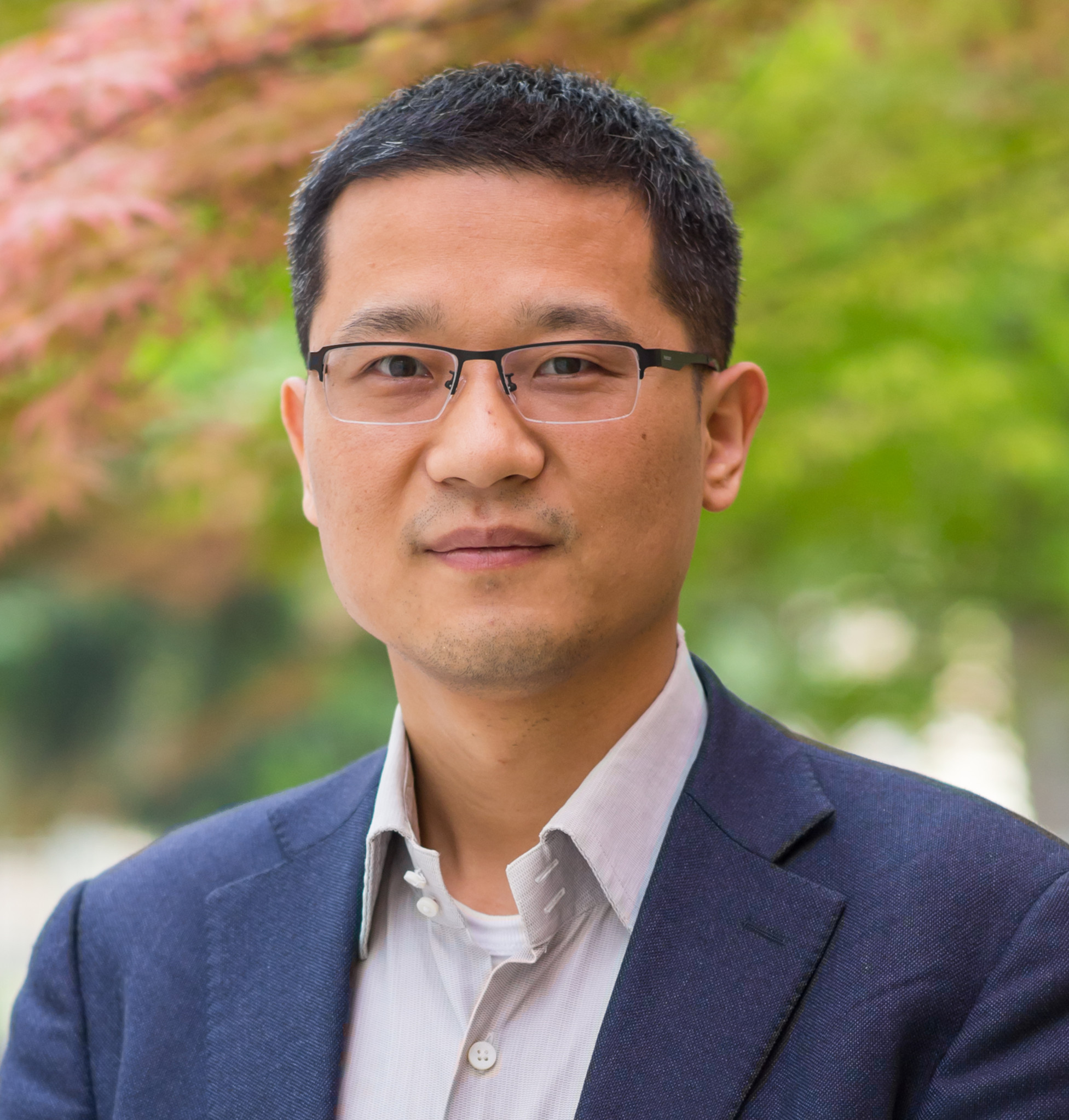
Mechanical Engineering Micro and Nano, China
Karen Cheung
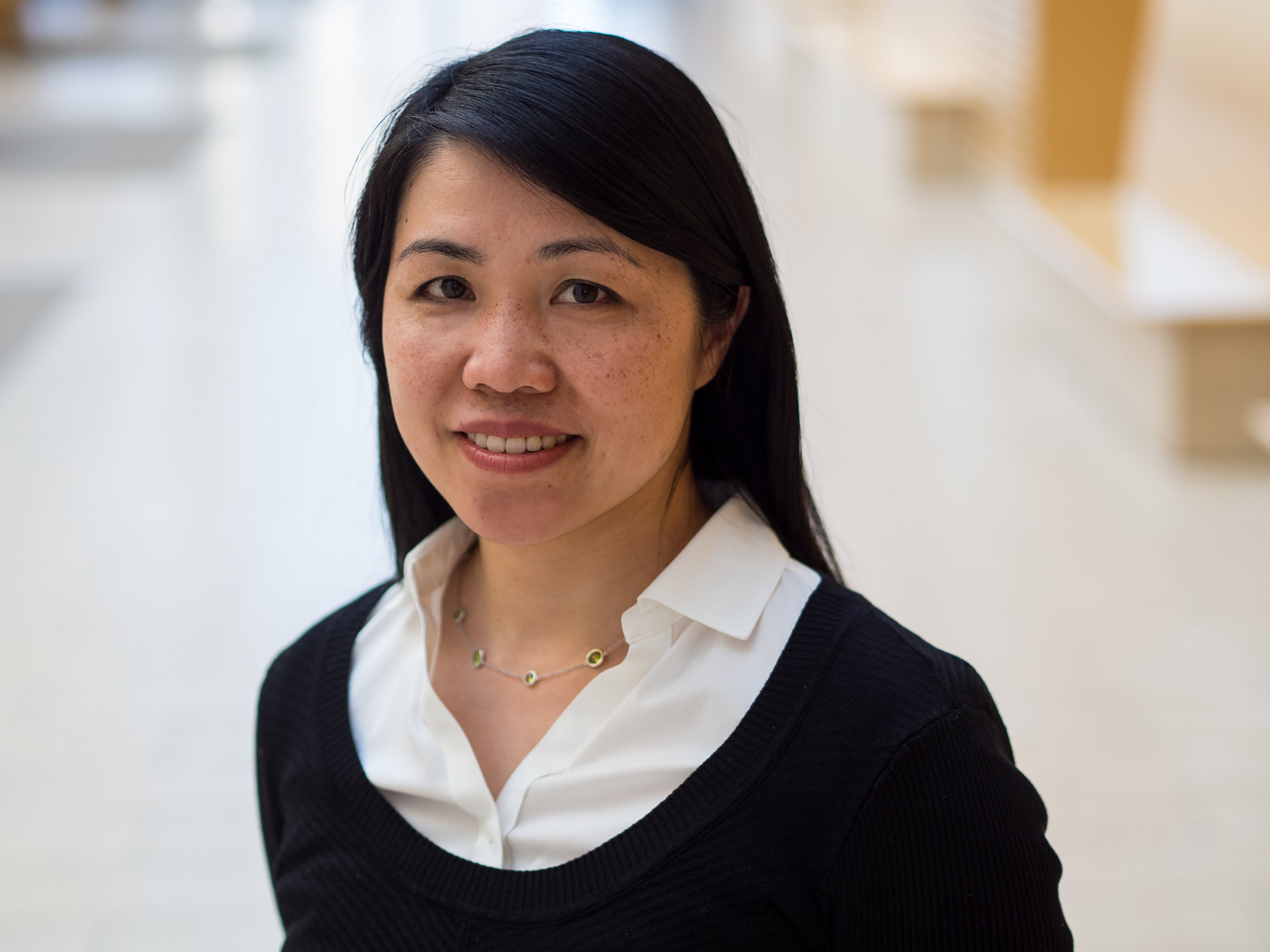
Karen C. Cheung received the B.S. and Ph.D. degrees in bioengineering from the University of California, Berkeley, CA, USA, in 1998 and 2002, respectively. She was a Postdoctoral Researcher with the École Polytechnique Fédérale de Lausanne, Switzerland. She is currently an Associate Editor for the journals IEEE Journal of Microelectromechanical Systems and Biomedical Microdevices, and has served on the technical program committees of the IEEE International Conference on Micro Electro Mechanical Systems (IEEE MEMS, where she also serves on the International Steering Committee and was General Co-chair of the MEMS 2020 conference), and the International Conference on Miniaturized Systems for Chemistry and Life Sciences (MicroTAS). She is a Professor at the University of British Columbia, Vancouver, BC, Canada; Associate Director of the School of Biomedical Engineering, and Director of the Graduate Program in the School of Biomedical Engineering. Her research interests include lab-on-a-chip systems for tissue engineering and high content drug screening, biosensors, inkjet printing for single cell dispensing, and implantable neural interfaces.
Daniela Diaz-Alonso
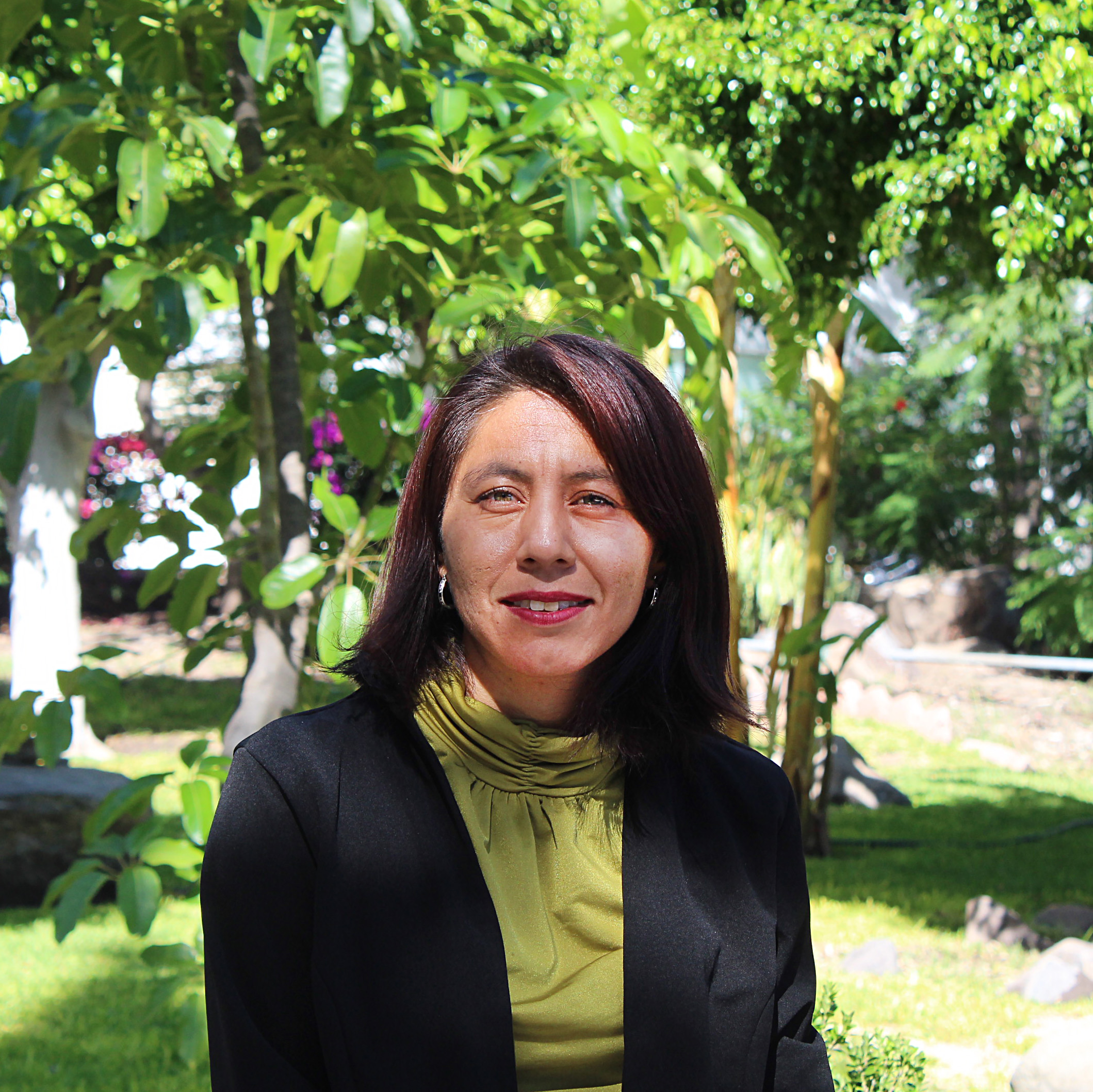
MEMS Department, Mexico
Daniela Diaz-Alonso is a Full Professor and Director of Electrical Engineering and Electronics Division at the Center for Engineering and Industrial Development (CIDESI), in Queretaro, Mexico. She received the MSc degree and PhD degree in Microelectronicsfrom the National Institute of Astrophysics, Optics and Electronics (INAOE) in 2010 and 2015 respectively. She has been working for the last 15 years in the field of design and manufacturing of MEMS Capacitive Pressure Sensors, Biomedical devices and Biosensor. She has co-authored research papers and peerreviewed conferences, with 2 pressure sensors development for medical application in Mexican patents grants. She has been program committee and chair of several conferences including Hilton Head Workshop and Transducers. Her research interests are now focused on the technological development of medical devices including microsensors develop.
Isabelle Dufour
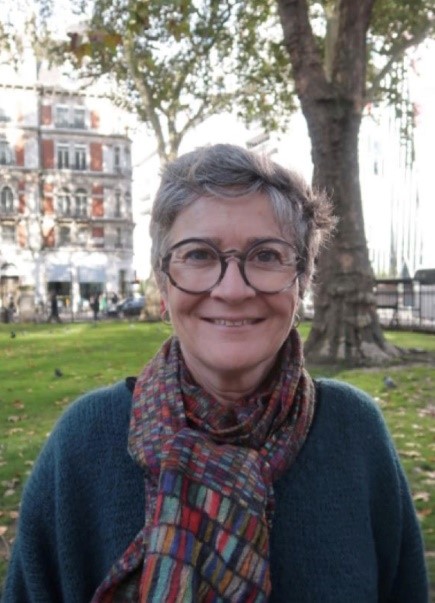
Univ. Bordeaux - CNRS (France)
Isabelle Dufour graduated from the École Normale Supérieure de Cachan, Cachan, France, in 1990, and received her Ph.D. and H.D.R. degrees in engineering science from the University of Paris-Sud, Orsay, France, in 1993 and 2000, respectively. She was a CNRS Research Fellow from 1994 to 2007, first in Cachan, working on the modeling of electrostatic actuators (micromotors and micropumps) and then, after 2000, in Bordeaux, working on microcantilever-based chemical sensors. She is currently a Professor of Electrical Engineering at the University of Bordeaux, Bordeaux, France. Her research interests are in the areas of MEMS-based sensors for chemical detection, rheological measurements and material characterization. She is currently the group leader of the “Organic Electronics and Microsystems Research Group” of the IMS Laboratory, Bordeaux, France.
David Elata - Professor
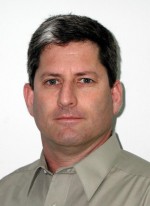
Research Areas: Electrostatic micro-actuators: e.g. micromirrors and switches. Electrostatic resonators: e.g. electrostatic and electret transducers that are perfectly linear or that have a tailored nonlinear response. Modeling of micro-scale transducers: theoretical investigation and derivation of design rules for: electrostatic, piezoelectric, thermoelastic and electromagnetic transduction.
Professional Memberships: IEEE
Biography:David Elata is a Professor at the Faculty of Mechanical Engineering of the Technion - Israel Institute of Technology. He is the head of the MEMS laboratory and a member of the Technion Russell Berrie Nanotechnology Institute. He earned a D.Sc. from the Technion in 1993, and has previously worked in the fields of Computational Mechanics, Geophysics, and Continuum Mechanics. His current research interests are in modeling and design of micro actuators and development of test devices for material and structure characterization at the micro-scale.
Philip Feng
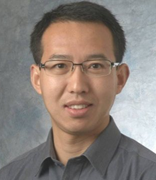
Electrical & Computer Engineering, USA
Hiroyuki Fujita - Professor
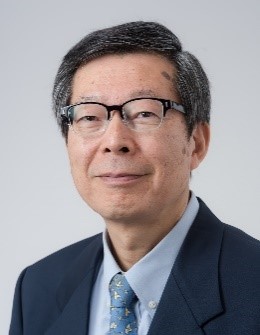
Hiroyuki Fujita is Director of Advanced Research Laboratory of Cannon Medical Systems Corporation from 2017. He is also a Professor of Tokyo City University and Professor Emeritus of The University of Tokyo, where he served as a Professor of Institute of Industrial Science of the University over 38 years. He was a visiting professor in MIT and UC Berkeley. He received the B.S., M.S. and Ph.D. degrees in Electrical Engineering from The University of Tokyo in 1975, 1977 and 1980, respectively. He is currently engaged in the investigation of MEMS/NEMS and applications to bio/nano technology and IoT. Major research projects include MEMS-in-TEM experiment for simultaneous visualization and measurement of nanomaterials, vibrational energy harvesters using ionic liquids, and bio molecular/cellular characterization using MEMS tools. He has published more than 300 academic papers. He received many awards including l'Ordre des Palmes Academiques from Government of France, Docteur Honoris Causa from Ēcole Normale Supērieure de Cachan, The Prize for Science and Technology -Research Category from Ministry of Education, Culture, Sports, Science and Technology, Outstanding Achievement Award from The Institute of Electrical Engineers of Japan, and IEEE Robert Bosch Award.
Songbin Gong
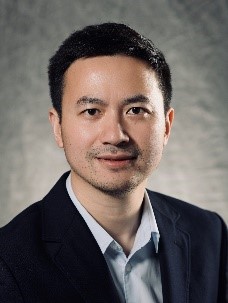
Prof. Songbin Gong (S’06–A’09–M’12–SM’17) received the Ph.D. degree in electrical engineering from the University of Virginia, Charlottesville, VA, USA, in 2010. He is currently an Associate Professor and the Intel Alumni Fellow with the Department of Electrical and Computer Engineering and the Micro and Nanotechnology Laboratory, University of Illinois at Urbana–Champaign, Urbana, IL, USA. His research primarily focuses on design and implementation of radio frequency microsystems, components, and subsystems for reconfigurable RF front ends. In addition, his research explores hybrid microsystems based on the integration of MEMS devices with photonics or circuits for signal processing and sensing. He is a recipient of the 2014 Defense Advanced Research Projects Agency Young Faculty Award, the 2017 NASA Early Career Faculty Award, and 2019 UIUC College of Engineer Dean’s Award for Excellence in Research. Along with his students and postdocs, he received the Best Paper Awards from the 2017 and 2019 IEEE International Frequency Control Symposium, the 2018 International Ultrasonics Symposium, and won 2nd place in Best Paper Competition at the 2018 IEEE International Microwave Symposium. He currently serves as the Chair of MTT TC2 and TC 21 of the IEEE Microwave Theory and Techniques Society.
Satoshi Konishi - Professor
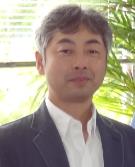
Research Areas: Fabrication technology for MEMS, Actuators for MEMS, MEMS for Biomedical Application
Professional Memberships: IEEE/RAS
Biography: Satoshi Konishi received the BS degree in 1991 in Electronics Engineering, the MS degree in 1993 and the PhD degree in 1996 in Electrical Engineering, from the University of Tokyo, Tokyo, Japan. He is currently Professor with Ritsumeikan University, Shiga, Japan, where he joined the faculty in 1996. He also serves as the director of bio medical devices center at Ritsumeikan University. He is also visiting Professor with Shiga University of Medical Science since 2007. He is also visitng Professor with Graduate School of Phrmaceutical Sciences, Kyoto University since 2009. He joined ULB as visiting Professor in 2011.
He is the Editorial Board Member of Sensors and Actuators A, the Editorial Board Member of Journal of Micromechanics and Microengineering. He is also International Steering Committee Member of Transducers and IEEE International Conference of MEMS. Especially he served as general co-chair of International Conference of MEMS 2007 in KOBE.
His study is devoted to microelectromechanical systems (MEMS) covering broad ranges from fundamental to applied fields. His current research focuses on biomedical MEMS, especially multiscale interfaces in BME.
Michael Kraft
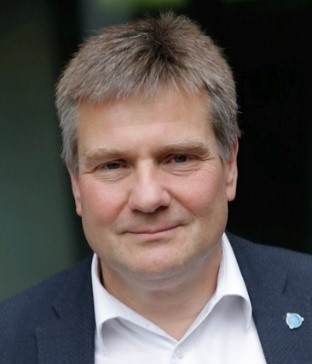
ESAT/MICAS, Belgium
Michael Kraft has been a Full Professor at KU Leuven, Belgium since 2017. He leads the research division Micro- and Nanosystems (MNS) in the Electrical Engineering Department, a research group with about 25 researchers. Before, he held faculty positions at University of Liege, University of Duisburg-Essen and University of Southampton. Since 2020, he concurrently is director of the Leuven Institute for Micro- and Nanoscale Integration (LIMNI). He served as General Chair for the joined Micro- and Nanoengineering and Eurosensors conference in Sept. 2022. He is also affiliated with imec as a guest researcher. He has served on several steering and technical committees of international conferences such as Transducers, ISSCC, IEEE Sensors, IEEE MEMS, Eurosensors, MNE and MME.
Giacomo Langfelder - Associate Professor and Lecturer of MEMS and Microsensors
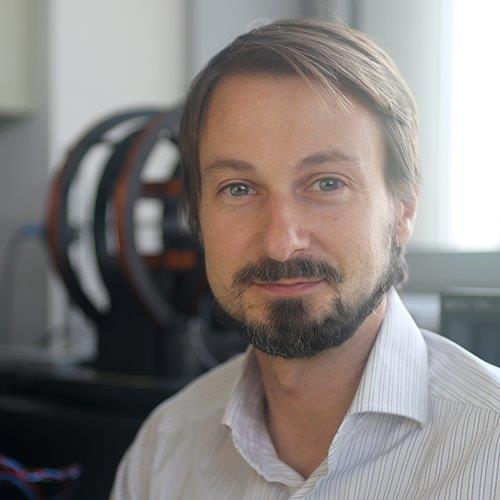
Dipartimento di Elettronica, Informazione e Bioingegneria (Italy)
Giacomo Langfelder received his MS in Electronics Engineering in 2005, and his PhD in Information Technology in 2009 from Politecnico di Milano, Italy, where he is currently an Associate Professor and Reader of MEMS and Microsensors. His scientific research topics include sensors, their front-end analog, digital and mixed-signal electronics, and related applications. He is now researching in the field of systems for low-noise, low-power applications, including NEMS-based sensors, FM accelerometers and gyroscopes, magnetometers, resonators and micromirrors.
In recent years, he served as a TPC member for the IEEE MEMS and the IEEE Inertial conferences, as an Associate Editor for the IEEE Sensors Letters, and as a Tutorial or Invited speaker at various conferences. Within his research, he has been tightly collaborating with industries for more than a decade with 130+ publications and 10+ patents. In 2014, he was the co-founder of ITmems s.r.l., a spin-off company dedicated to the development of Instrumentation for the characterization of MEMS inertial sensors.
Chengkuo Lee
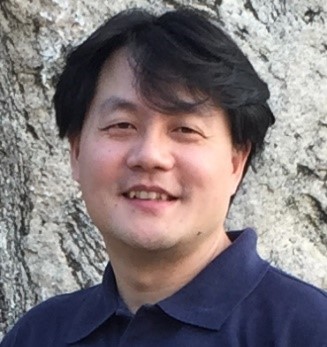
Dept. of Electrical & Computer Engineering
Dr. Chengkuo Lee received his M. Sc. Degree from Rutgers University, New Brunswick, NJ, USA, in 1993, and Ph.D. degree from The University of Tokyo, Tokyo, Japan, in 1996. After his PhD, he has worked as JST fellow at AIST, Tsukuba, Japan in 1996. He has worked at ITRI, Hsinchu, Taiwan in 1996. From 1997 to 2000, he was the manager of MEMS division at Metrodyne Microsystems, Hsinchu, Taiwan. He cofounded Asia Pacific Microsystems, Inc. (APM) in 2001, where he was Vice President of R&D from 2001 to 2005. From 2006 to 2009, he was a Senior Member of the Technical Staff at the Institute of Microelectronics (IME), A-STAR, Singapore. Currently, he is the director of Center for Intelligent Sensors and MEMS at National University of Singapore, Singapore.
His research interests include sensors, MEMS, NEMS and flexible devices for IoT, energy harvesting, metamaterials and biomedical applications. He has trained 20+ PhD students graduated from ECE Dept., NUS. He has co-authored 300+ journal articles and 300+ conference papers. His ORCID is 0000-0002-8886-3649. He serves on steering committee and technical program committee for various conferences such as Transducers 2015, IEEE MEMS 2015, IEEE NEMS 2015, IEEE SENSORS 2018, IEEE MEMS 2019 and Transducers 2019, and IEEE MEMS2020, etc. He has also chaired many conferences including IEEE NEMS’18, OMN ’16 and ’14, and ISMM ’14, etc.
Hyunjoo Jenny Lee - Sensors and Actuators
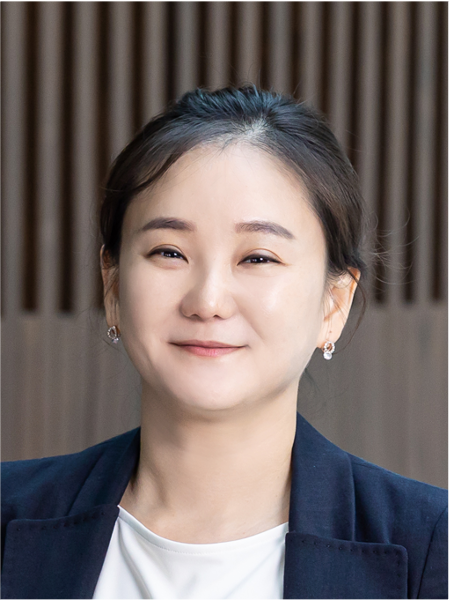
Hyunjoo Jenny Lee is an Associate Professor in the School of Electrical Engineering and the KAIST Endowed Chair Professor at the Korea Advanced Institute of Science and Technology (KAIST). She received the B.S. degree and M.Eng. degree in Electrical Engineering and Computer Science from the Massachusetts Institute of Technology (MIT), Cambridge, MA, in 2004 and 2005, respectively, and the Ph.D. degree in Electrical Engineering from Stanford University, Stanford, CA, in 2012. Her research focuses on MEMS sensors and actuators for biomedical applications including neural interfaces, ultrasound transducers, epidermal electronics, and biosensors. She is the author of over 50 journal and conference papers and is a recipient of a number of awards, including the Korean Government's Minister of Science and ICT's Award (2022), KAIST Technology Innovation Award (2021), and WEF Young Scientist Award (2017).
Sheng-Shian Li
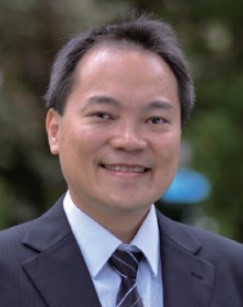
Institute of NanoEngineering and MicroSystems, Taiwan
Sheng-Shian Li (Senior Member, IEEE) received the B.S. and M.S. degrees in mechanical engineering from National Taiwan University, Taipei, Taiwan, in 1996 and 1998, respectively, and the M.S. and Ph.D. degrees in electrical engineering and computer science from the University of Michigan, Ann Arbor, MI, USA, in 2004 and 2007, respectively.
In 2008, he joined the Institute of NanoEngineering and MicroSystems (iNEMS), National Tsing Hua University (NTHU), Hsinchu, Taiwan, where he is currently a NTHU Distinguished Professor. His research interests include MEMS/NEMS, integrated resonators and sensors, RF MEMS, CMOS-MEMS technology, frontend communication architectures, and integrated circuit design and technology. He was a recipient of the Teaching Excellence Award 2019 and Young Faculty Research Award 2013 from the National Tsing Hua University. He also received the Ta-Yu Wu Memorial Award from the National Science Council (NSC) of Taiwan in 2013 and the Outstanding Research Award from the Ministry of Science and Technology (MOST) of Taiwan in 2020. Together with his students, he received the Best Paper Awards at the 2011 IEEE International Frequency Control Symposium, the 2012 IEEE Sensors Conference, and the 2017/2023 Transducers Conference. He has served as the TPC/ETPC of the IEEE International Frequency Control Symposium, the IEEE Sensors Conference, the Transducers Conference, the IEEE MEMS Conference, and IEEE IEDM. Dr. Li also serves as the Associate Editors of the IEEE Sensors Letters, the IEEE Sensors Journal, and the IEEE JMEMS. He is appointed as General Co-Chair for 2025 IEEE MEMS Conference.
Ellis Meng - Professor
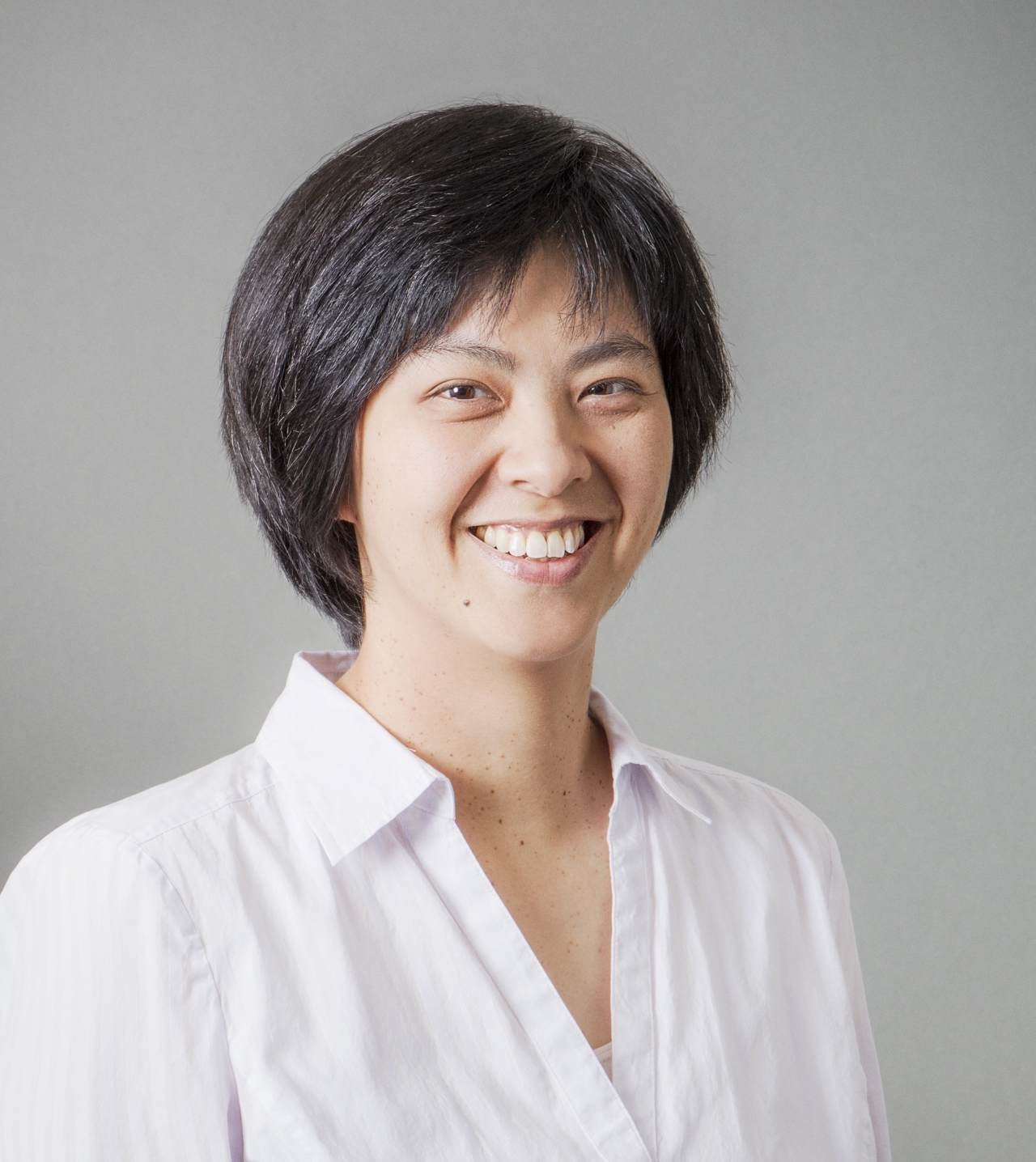
Viterbi School of Engineering
Ellis Meng is Professor of Biomedical Engineering and Electrical and Computer Engineering in the Viterbi School of Engineering at the University of Southern California where she has been since 2004. She also serves as the Vice Dean of Technology Innovation and Entrepreneurship. She was Dwight C. and Hildagarde E. Baum Chair of the Department of Biomedical Engineering from 2015-2018 and inaugural holder of a Gabilan Distinguished Professorship in Science and Engineering from 2016-2019. She received the B.S. degree in engineering and applied science and the M.S. and Ph.D. degrees in electrical engineering from the California Institute of Technology (Caltech), Pasadena, in 1997, 1998, and 2003, respectively. Her research interests include biomedical microelectromechanical systems (bioMEMS), implantable biomedical microdevices, microfluidics, multimodality integrated microsystems, microsensors and actuators, biocompatible polymer microfabrication, and packaging. Her honors include the NSF CAREER award, Wallace H. Coulter Foundation Early Career Award, 2009 TR35 Young Innovator Under 35, Viterbi Early Career Chair, ASEE Curtis W. McGraw Research Award, 2018 IEEE Engineering in Medicine and Biology Society Technical Achievement Award, and 2019 IEEE Sensors Council Technical Achievement Award. She is a fellow of IEEE, ASME, BMES, AIMBE, and NAI. In addition to serving on the editorial board for IEEE JMEMS, she is also on the board of Journal of Micromechanics and Microengineering and Frontiers in Mechanical Engineering, Micro- and Nano-mechanical Systems. She was co-chair of the 2017 IEEE MEMS conference. She is also an active educator and authored a textbook on bioMEMS.
Jianmin Miao - Professor
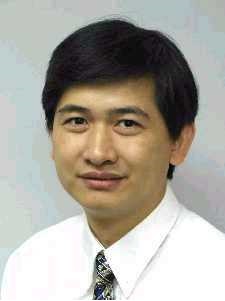
School of Mechanical and Aerospace Engineering
Research Areas: MEMS microfabrication and packaging; Physical, microfluidic and biological sensors; Biomimetic and bio-inspired MEMS/NEMS; Energy harvesting MEMS
Professional Memberships: IEEE/EDS
Biography:Jianmin Miao received his bachelor degree from the Tongji University in Shanghai, Dipl.-Ing. (Master degree) and Dr.-Ing. (PhD) from the Darmstadt University of Technology, Germany. After spending several years in industry for sensor/MEMS development, he joined the Nanyang Technological University in 1998 as faculty to establish the Micromachines (MEMS) Centre as the Founding Director. Professor Miao has collaborated with MIT at the Singapore-MIT Alliance for Research and Technology (SMART) since 2008 and was a visiting professor at MIT in 2013. He has authored or co-authored numerous papers in international journals and conferences, several book/chapters, and holds dozen patents. He has served as Chair and Co-Chair of MEMS/nanotechnology international conferences, technical committee member of international conferences, including the IEEE-MEMS and Transducers conference. He was invited by several international MEMS/Nanotechnology conferences as plenary speaker, keynote lecturer, and invited speaker.
Frederic Nabki
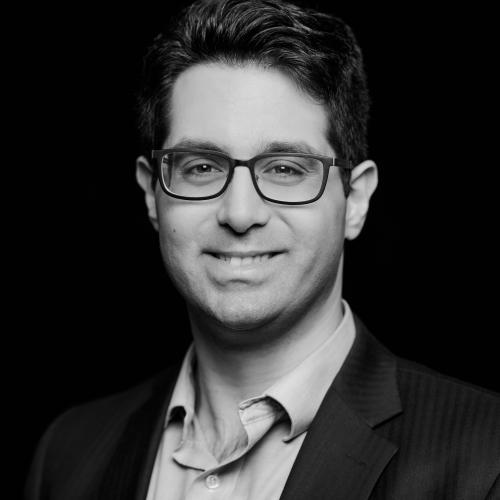
Department of Electrical Engineering, Canada
Frederic Nabki is a professor at the École de Technologie Supérieure, Montreal, in the Department of Electrical Engineering since 2016. From 2008 to 2016, he was a professor in Microelectronics Engineering at the Université du Québec à Montréal. He received the B.Eng. degree (Hons.) in electrical engineering and the Ph.D. degree in electrical engineering from McGill University, Montreal, QC, Canada, in 2003 and 2010, respectively. His research interests include microelectromechanical systems (MEMS) and analog, radiofrequency, and mixed-signal integrated circuits (ICs), specifically focusing on the creation of next generation MEMS processes and devices, the integration of MEMS devices with microelectronic systems, the modeling of MEMS devices, and the design of integrated circuits such as analog to digital converters, sensor interfaces, and ultra-wideband wireless transceivers. He has coauthored two book chapters and published over two hundred scientific publications. He holds several issued patents related to MEMS, ICs, and ICs/MEMS monolithic integration. Prof. Nabki is a member of the Communications and Microelectronic Integration Laboratory (LACIME) at ETS. He also jointly manages the Microtechnology and Microsystems Laboratory (Micro2). He served as the Secretary and Treasurer of the Montreal Section of the IEEE from 2013 to 2017, and was local arrangement chair of several international IEEE conferences held in Montreal: ISCAS 2016, NEWCAS 2012 & 2018 and Life Sciences Conference 2018. Moreover, he was a TPC member of the NEWCAS conference between 2013-2020 and TPC co-chair in 2022.
Rudra Pratap - Professor
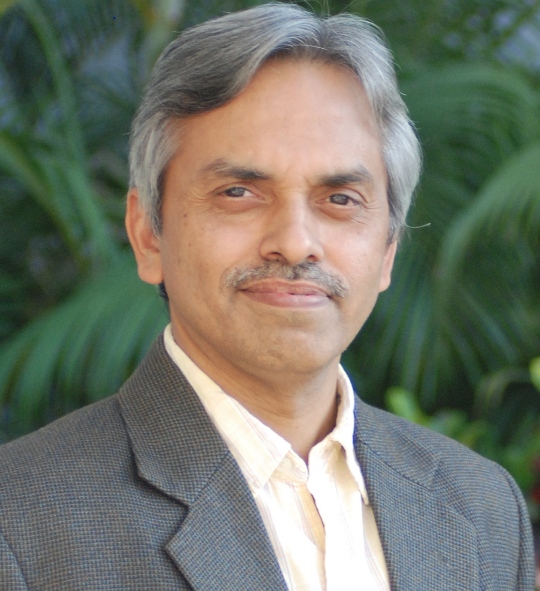
(India)
Research Areas: Dynamic MEMS, e.g., inertial MEMS, Microphones, CMUTs, PMUTs, and resonators. Energy dissipation at micro and nano scales. Energy harvesting. Mechanobiology. Nonlinear dynamics
Professional Memberships: IEEE, ISSS
Biography: Dr Rudra Pratap is a Professor and the Chairperson of the Centre for Nano Science and Engineering (CeNSE), and an associate faculty of the Department of Mechanical Engineering at the Indian Institute of Science, Bangalore. He specializes in MEMS and NEMS design. His other research interests include nonlinear dynamics, mechano-biology, and computational mechanics. Professor Pratap holds a Ph.D. degree from Cornell University, USA, a Masters degree from the University of Arizona, USA, and a B. Tech. from the Indian Institute of Technology, Kharagpur, India. Prior to joining IISc in 1996, he taught at the Sibley School of Mechanical and Aerospace Engineering, Cornell University, for two and a half years. He was also an 'Invited Professor' at EPFL, Lausanne, Switzerland during 2004-2005. He has been at the Indian Institute of Science, Bangalore, India, since 1996. He is a member of the Vision Group on Nanotechnology of Karnataka State. He has served on the editorial board of various journals. He is also the Chairman of i2n Technolgies Pvt Ltd, a company that he co-founded in 2010 for making nanotech hardware products. Dr. Pratap is a Fellow of the National Academy of Engineering.
Niels Quack
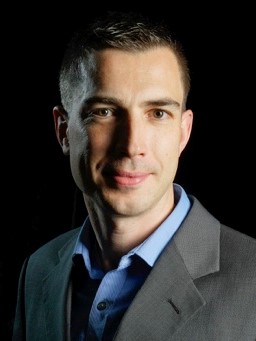
(Switzerland)
Niels Quack is Assistant Professor at Ecole Polytechnique Fédérale de Lausanne (EPFL), Lausanne, Switzerland. He received the M. Sc. degree from Ecole Polytechnique Fédérale de Lausanne (EPFL), Switzerland, in 2005, and the Dr. Sc. degree from Eidgenössische Technische Hochschule Zürich (ETH), Switzerland, in 2010.
Prior to joining EPFL, Niels was from 2011 to 2015 Postdoctoral Researcher and Visiting Scholar at the Berkeley Sensor and Actuator Center at University of California, Berkeley, CA, USA. From 2014 to 2015 he was Senior MEMS Engineer with sercalo Microtechnology, Neuchâtel, Switzerland.
Research interests include Photonic Micro- and Nanosystems, with an emphasis on Diamond Photonics and Silicon Photonic MEMS. He is Steering Committee Member of the IEEE International Conference on Optical MEMS and Nanophotonics (OMN), served as General Chair of the IEEE OMN 2018, General Chair of the Symposium Latsis 2019, Organizing Committee Member of Transducers 2019. He serves as Technical Program Committee Member of IEEE MEMS, ECOC and SPIE OPTO. He is senior member of IEEE, member of OSA and lifetime member of SPIE, and he has authored and co-authored more than 70 papers in leading technical journals and conferences.
Swaminathan Rajaraman
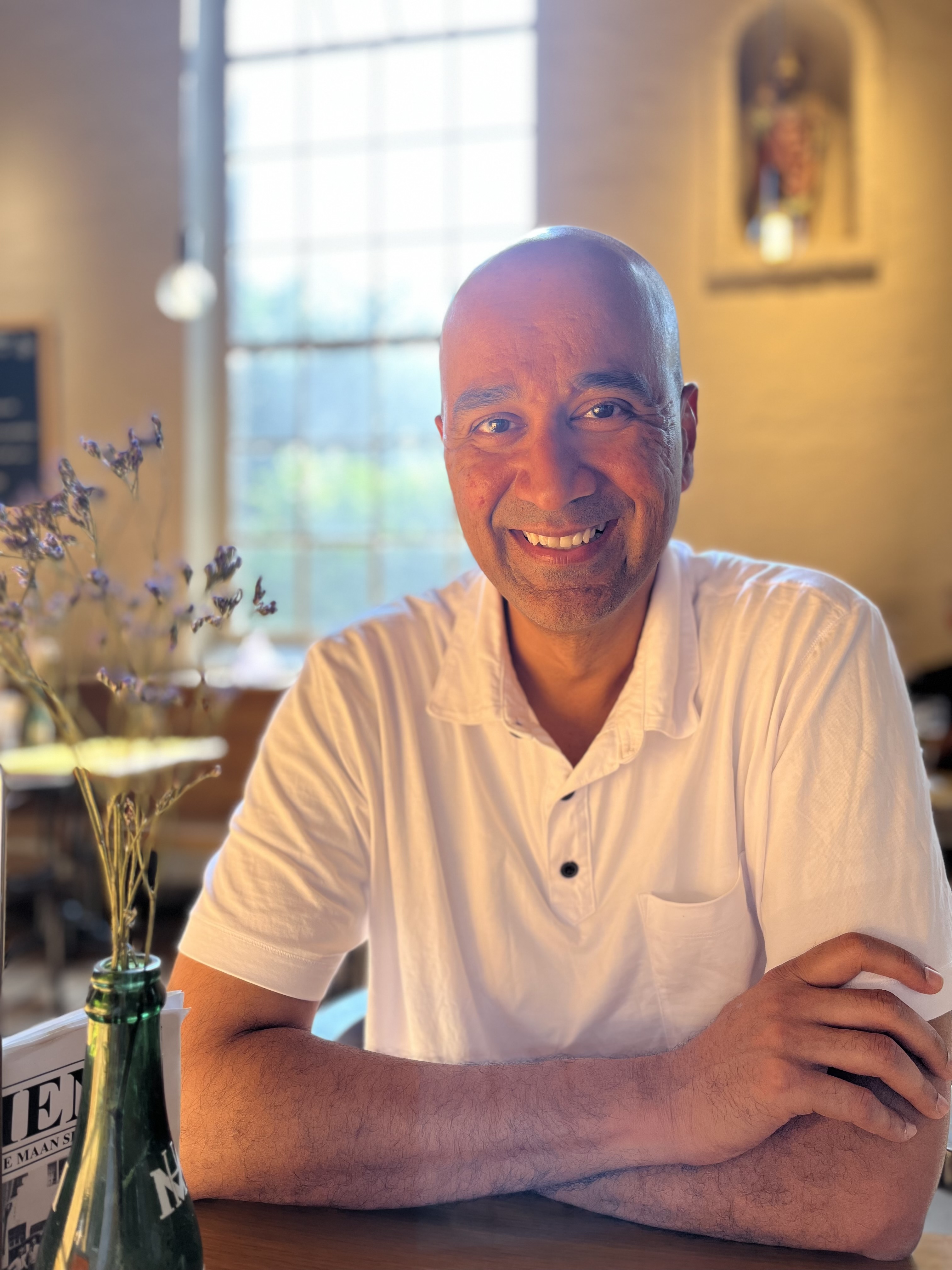
NanoScience Technology Center
Swaminathan Rajaraman received his M.S. degree in Electrical Engineering from the University of Cincinnati (Cincinnati, OH) and his Ph.D. degree in Electrical Engineering from the Georgia Institute of Technology (Atlanta, GA) respectively.
Prof. Rajaraman is a tenured Professor and a successful entrepreneur. He is currently Associate Professor in the NanoScience Technology Center and the Department of Materials Science and Engineering at the University of Central Florida (Orlando, FL) with additional appointments in Electrical Engineering and Biomedical Sciences. He runs a very interdisciplinary group composed on Electrical Engineers, Biomedical Scientists, Material Scientists, Mechanical Engineers, and Chemists. His current research interests include in-vitro and in-vivo Microelectrode Arrays (MEAs), hybrid micro/nanofabrication, micro/nanofabrication on novel, biological substrates, microneedles, agricultural microsystems, microfluidic devices, multimodal cell-based nanosensors, 3D printing and implantable MEMS devices. He also serves as the Deputy Director of the NSF I/UCRC, MIST Center (https://mistcenter.org) at UCF.
Prior to his academic appointment, he has worked in the Micro-Electro-Mechanical Systems (MEMS) industry with Analog Devices Inc., (Cambridge, MA), a world-leader in MEMS manufacturing and CardioMEMS (now Abbott Labs, Atlanta, GA) which developed the world’s first FDA approved implantable MEMS pressure sensor. He further co-founded Axion BioSystems Inc. (https://www.axionbiosystems.com Atlanta, GA), a world-leader in high-throughput Microelectrode Arrays (MEAs) and MEA systems which was successfully acquired by Summa Equity in 2021.
He has published more than 75 articles in peer-reviewed journals and conferences, holds more than 30 patents/applications, developed several MEMS products that are in volume production and has mentored in excess of 40 graduate students, undergraduate students, engineers and post-doctoral fellows. Dr. Rajaraman has served/serves on the Technical Program Committee (TPC) of IEEE Sensors, Hilton Head MEMS Workshop, IEEE Transducers, and IEEE MEMS. He will be the Program Chair for Hilton Head MEMS Workshop 2024 and General Chair for the same workshop in 2026. He was also elected to the Transducers Research Foundation (https://www.transducer-research-foundation.org) Board of Directors in 2021. Since 2019, he also serves on the Editorial Board of Nature Scientific Reports.
Niclas Roxhed

Micro and nanosystems, Sweden
Debbie G. Senesky - Sensor and Actuators; Compound Semiconductor Devices

EXtreme Environment Microsystems Lab (XLab)
Debbie G. Senesky is an Assistant Professor at Stanford University in the Aeronautics and Astronautics Department and by courtesy, the Electrical Engineering Department. She received the B.S. degree (2001) in mechanical engineering from the University of Southern California. She received the M.S. degree (2004) and Ph.D. degree (2007) in mechanical engineering from the University of California, Berkeley. She has also held positions at GE Sensing (formerly known as NovaSensor), GE Global Research Center, and Hewlett Packard. She has served as a subcommittee member (2014, 2015) and the subcommittee chair (2016) of the Sensors, MEMS and BioMEMS (SMB) subcommittee of the IEEE International Electron Devices Meeting (IEDM). Her current research interests include the development of micro- and nano-scale sensors, wide bandgap electronics, and interface materials for operation within extreme harsh environments. She is a recipient of the NASA Early Faculty Career Award and Alfred P. Sloan Foundation Fellowship Award.
Ryan Sochol
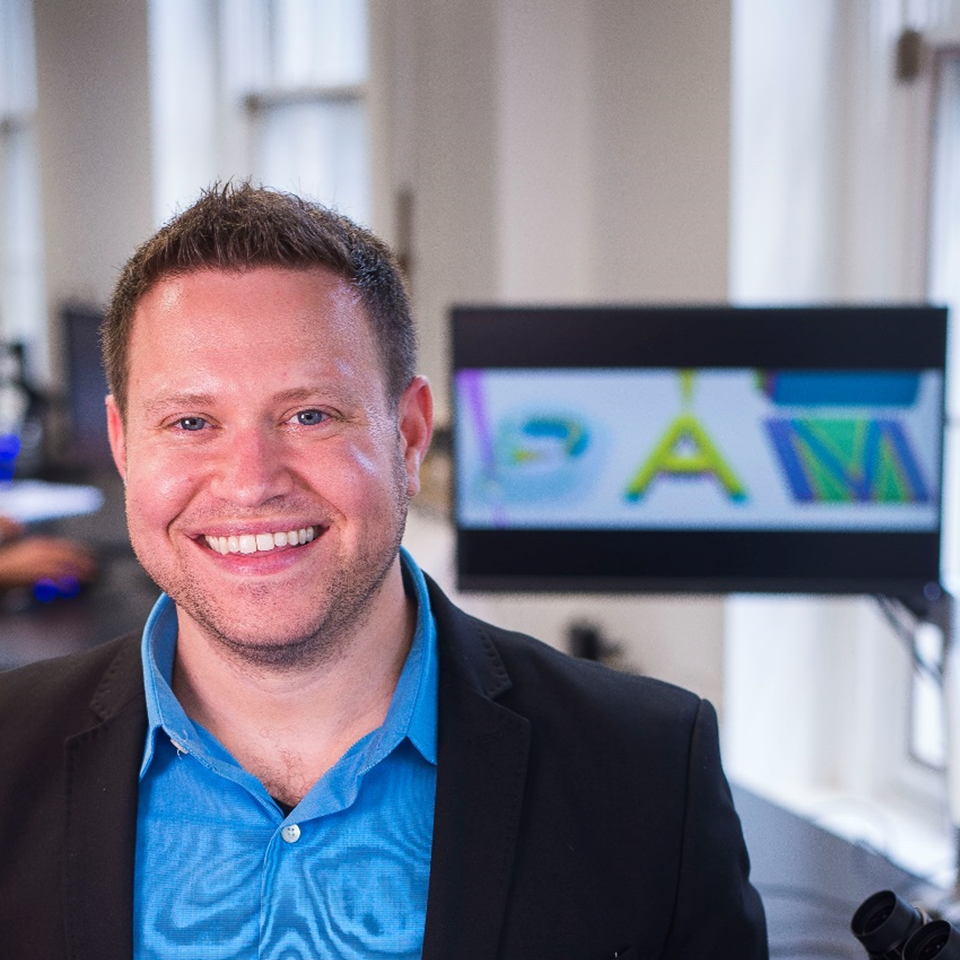
Ryan D. Sochol is an Assistant Professor of Mechanical Engineering within the A. James Clark School of Engineering at the University of Maryland, College Park. He received his B.S. in Mechanical Engineering from Northwestern University in 2006, and both his M.S. and Ph.D. in Mechanical Engineering from the University of California, Berkeley, in 2009 and 2011, respectively, with Doctoral Minors in Bioengineering and Public Health. Prior to joining the faculty at UMD, he held two primary postdoctoral positions: (i) as an NIH Postdoctoral Trainee within the Harvard-MIT Division of Health Sciences & Technology, Harvard Medical School, and Brigham & Women’s Hospital, and (ii) as the Director of the Micro Mechanical Methods for Biology (M3B) Laboratory Program within the Berkeley Sensor & Actuator Center at UC Berkeley. His research interests center on pioneering micro/nanoscale additive manufacturing or “3D printing” strategies that advance biomedical research and applications, and ultimately, benefit human health and well-being. His group received IEEE MEMS "Outstanding Student Paper Awards" in both 2019 and 2021 and the "Springer Nature Best Paper Award (Runner Up)" at the Hilton Head Workshop in 2022. He received the NSF CAREER Award in 2020 and the "Early Career Award" from the Journal of Micromechanics and Microengineering in 2021, and recently, was selected as an inaugural "Rising Star" by the Advanced Materials Technologies journal.
Roozbeh Tabrizian
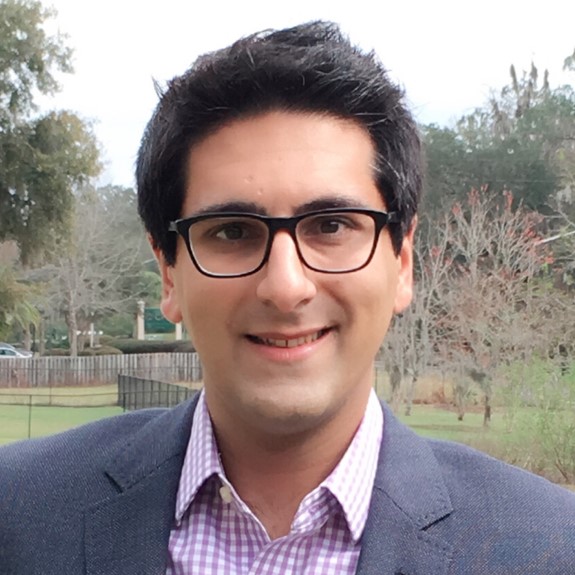
Electrical and Computer Engineering
Shuji Tanaka
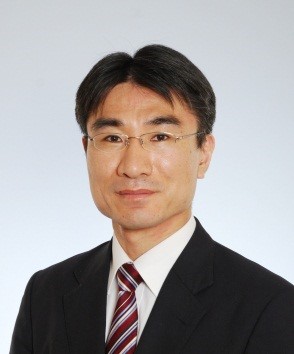
Shuji Tanaka received B.E., M.E. and Dr.E. degrees in mechanical engineering from The University of Tokyo in 1994, 1996 and 1999, respectively. He was a Research Associate at Department of Mechatronics and Precision Engineering, Tohoku University from 1999 to 2001, an Assistant Professor from 2001 to 2003, and an Associate Professor at Department of Nanomechanics from 2003 to 2013. He is currently a Professor at Department of Robotics and Microsystem Integration Center. He was also a Fellow of Center for Research and Development Strategy, Japan Science and Technology Agency from 2004 to 2006, and a Selected Fellow from 2006 to 2018. In FY2017, he serves as the President of Micro-Nano Science & Engineering Division, Japan Society of Mechanical Engineers (JSME). He was honored with many awards and prizes including The Young Scientists’ Prize, The Commendation for Science and Technology by the Minister of Education, Culture, Sports, Science and Technology (2009), German Innovation Award and Gottfried Wagener Prize (2012). His research interests include MEMS sensors, MEMS packaging and integration, acoustic wave devices, and piezoelectric devices and materials. He is an IEEE Fellow and a JSME Fellow.
Toshiyuki Tsuchiya
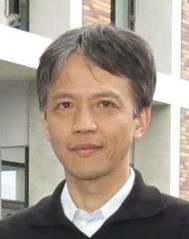
Toshiyuki Tsuchiya received the M.S. degree from the University of Tokyo, Japan, and the Ph.D. degree from Nagoya University, Japan, in 1993 and 2004, respectively. He worked with Toyota Central Research and Development Laboratories from 1993 to 2004. In 2004, he joined the Department of Mechanical Engineering, Kyoto University, Kyoto, Japan as an Associate Professor. Now he is a Professor in the Department of Micro Engineering, Kyoto University, Japan. He is currently engaged in the research of silicon micromachining, MEMS devices, mechanical reliability of microscale materials and MEMS, and MEMS tools for nanoscale physics. Dr. Tsuchiya is a member of IEEE, MRS, SPIE, the Institute of Electrical Engineers of Japan, the Japan Society of Mechanical Engineers.
Yao Zhu
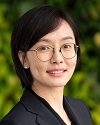
A*STAR, Singapore
- Publications
- Publications Committee
- Publication Representatives
- IEEE Guidelines for Authors
- Editorials for Authors and Reviewers
- EDS Newsletter
- IEEE Electron Devices Magazine
- Journal of Photovoltaics
- Transactions on Device and Materials Reliability
- Transactions on Semiconductor Manufacturing
- Journal on Flexible Electronics
- Journal of Lightwave Technology
- Transactions on Materials for Electron Devices
- Open Journal on Immersive Displays
- Electron Device Letters
- Journal of the Electron Devices Society
- Transactions on Electron Devices
- Journal of Microelectromechanical Systems
- Journal on Exploratory Solid-State Computational Devices and Circuits
- Journal of Electronic Materials
- EDS 50th Anniversary Booklet
- 75th Anniversary of the Transistor Book
- Electron Devices Reviews
